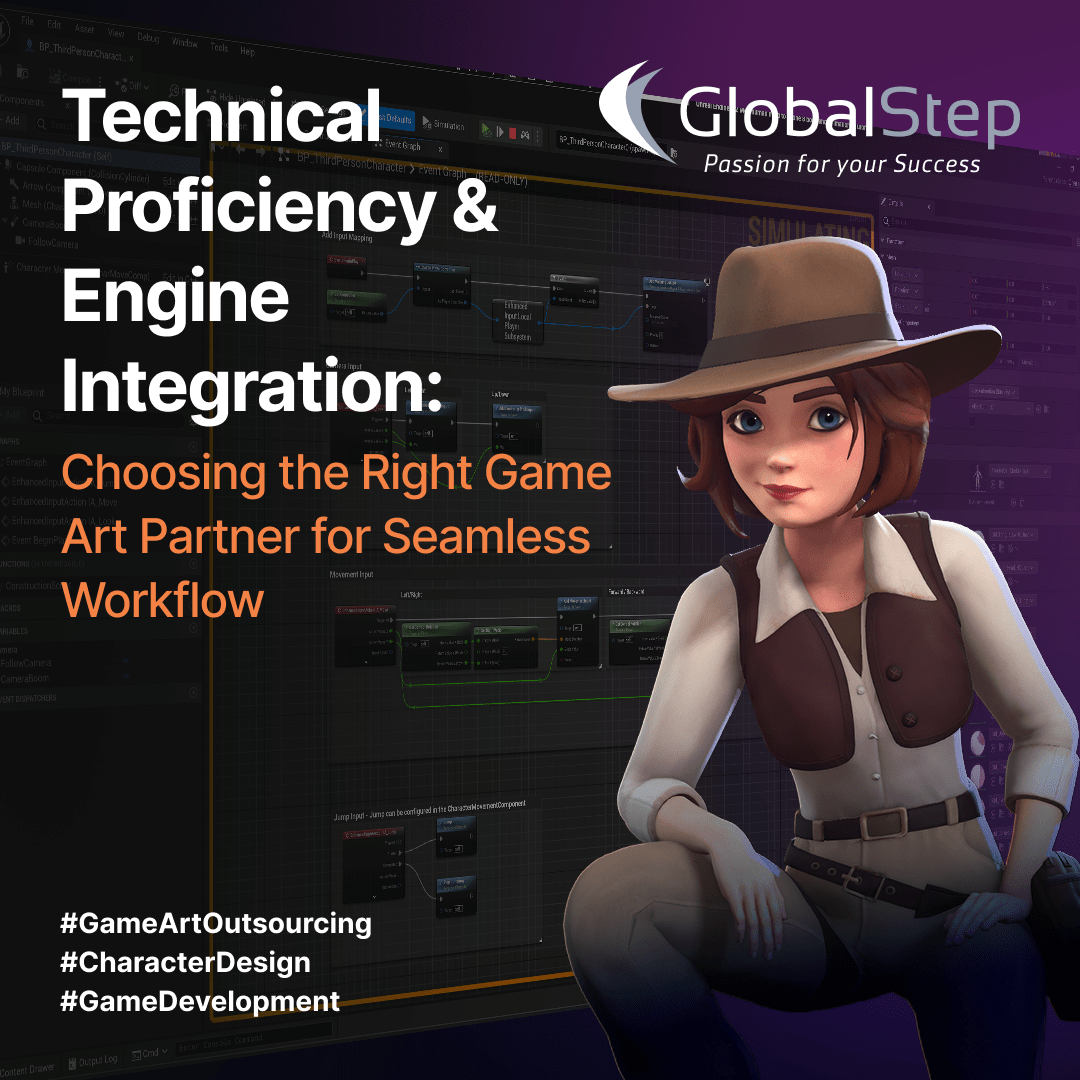
Every game developer wants to deliver flawless gameplay, but ensuring top-notch performance becomes unwieldy when the games are more sophisticated and the expectations higher. So, when time is of the essence and internal resources strained to the limit, outsourcing game QA becomes a clever strategic step for many studios. In this blog, we will discuss when outsourcing QA makes sense and why it can be very beneficial for your project.
Identifying the Need for Outsourcing Game QA
For most game studios, the need to outsource QA is born from a specific set of challenges. Perhaps your team wants to focus on core video game development and can’t dedicate enough time or resources to handle deep testing, or your game is set for global release, thus needing language-specific testing across different markets.
Additional Reasons for Outsourcing Game QA
Outsourcing offers a flexible approach that lets studios scale QA resources up or down throughout the project, whether during pre-release phases or live support stages. This flexibility proves especially useful as QA requirements evolve over time and specific deadlines approach.
For smaller companies, building an in-house, embedded QA team early on can represent a major investment, especially with the high demand for skilled QA professionals in video game development. Outsourcing grants access to specialized Development QA, which goes beyond basic functional testing to actively support production by catching issues earlier in the pipeline, fostering efficient workflows, and enhancing overall quality — without the need for permanent hires.
Another significant advantage is the objectivity that an external, dedicated QA team brings. Since the core development is handled separately, outsourced QA teams concentrate solely on identifying issues—whether they are potentially game-breaking bugs or smaller engagement-impacting flaws. This separation ensures a more objective and unbiased approach, leading to thorough and accurate testing. Ultimately, this boosts the game’s success by catching problems that may not be as visible to those immersed in the game’s development.
When to Outsource
It makes sense to outsource QA in many situations. If these core development tasks are already being performed by your internal team, then involving them in extensive QA processes can cost you the overall speed. The outsourcing will help the internal teams engage in the creation of the game since the testing is covered by qualified professionals. Games which exist today require a number of tests to be performed —functionality, compatibility, localization, and platform compliance to name a fe Having an outsourced development QA team will aid in shift-left best practices along with the development team. This early focus on quality will reduce testing efforts later in the project and save development bandwidth.
Another very important factor of great value is tight deadlines. As release dates draw near, it becomes quite an uphill task for internal teams to test every minute detail of a game. The outsourcing route enables you to rapidly scale up your testing and allows you to meet launch deadlines without compromising on quality. In the case of games meant for a worldwide audience, localization QA becomes critical. Language accuracy testing, cultural sensitivity, and functionality testing in various regions are all ways to ensure your game will indeed translate. This specialized testing can be supported by native speakers from an external QA team that holds experience in video game localization.
Benefits of Outsourcing QA

Outsourcing game QA brings several advantages that can enhance your development process. By accessing experienced testers with expertise across different platforms and genres, you can identify issues that might go unnoticed by in-house teams. These specialized testers have a broader perspective and can catch problems that developers deeply immersed in the game might miss.
Cost efficiency is another key benefit. Setting up an internal QA department can be expensive, especially when it involves purchasing tools, software, and hiring personnel. Outsourcing enables studios to pay for testing services only when needed, reducing overhead costs. Additionally, outsourcing provides the flexibility to scale your testing efforts depending on the project’s stage. As your game moves through development, the scope of testing may change — outsourcing allows you to adjust without committing to permanent hires.
Working with QA teams in different time zones also provides an advantage. While your core team is resting, an external QA team in another region can continue identifying issues, allowing for almost continuous game development and testing, ensuring faster progress.
Overcoming Potential Drawbacks
While outsourcing has many benefits, the key to maximizing those benefits is efficient collaboration. A dedicated QA team that understands your game’s goals and vision can seamlessly integrate with your internal processes. Through open lines of communication and well-structured workflows, outsourcing partners can offer a smooth testing process that aligns with your development milestones. The best QA teams are adept at proactively resolving any cross-team challenges, such as different time zones, by ensuring there is continuous feedback and progress, allowing you to maintain a steady rhythm in development and testing.
Choosing the right outsourcing partner is crucial to a project’s success. You need a QA team that understands your game’s vision, has experience with your genre, and uses testing methodologies that align with your internal processes.
Conclusion: Making the Right Choice for Your Game
Outsourcing game QA can give your project the boost it needs to deliver a polished, high-quality experience without overburdening your internal team. By bringing in experts with specialized skills, scaling testing efforts as required, and ensuring global readiness, you can avoid costly delays and ensure a successful launch.
At GlobalStep, we understand the unique challenges of game QA. With 17 years of experience in game testing, we provide comprehensive solutions tailored to your game’s needs, whether it’s functionality testing, localization QA, or platform certification. Our global network of experts is ready to help you deliver an immersive, high-quality gameplay experience. Learn more about our Game Testing and Localization QA services on GlobalStep.com.





